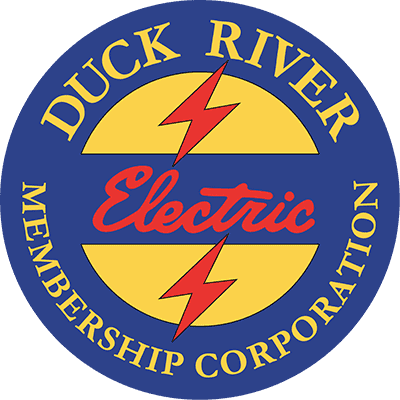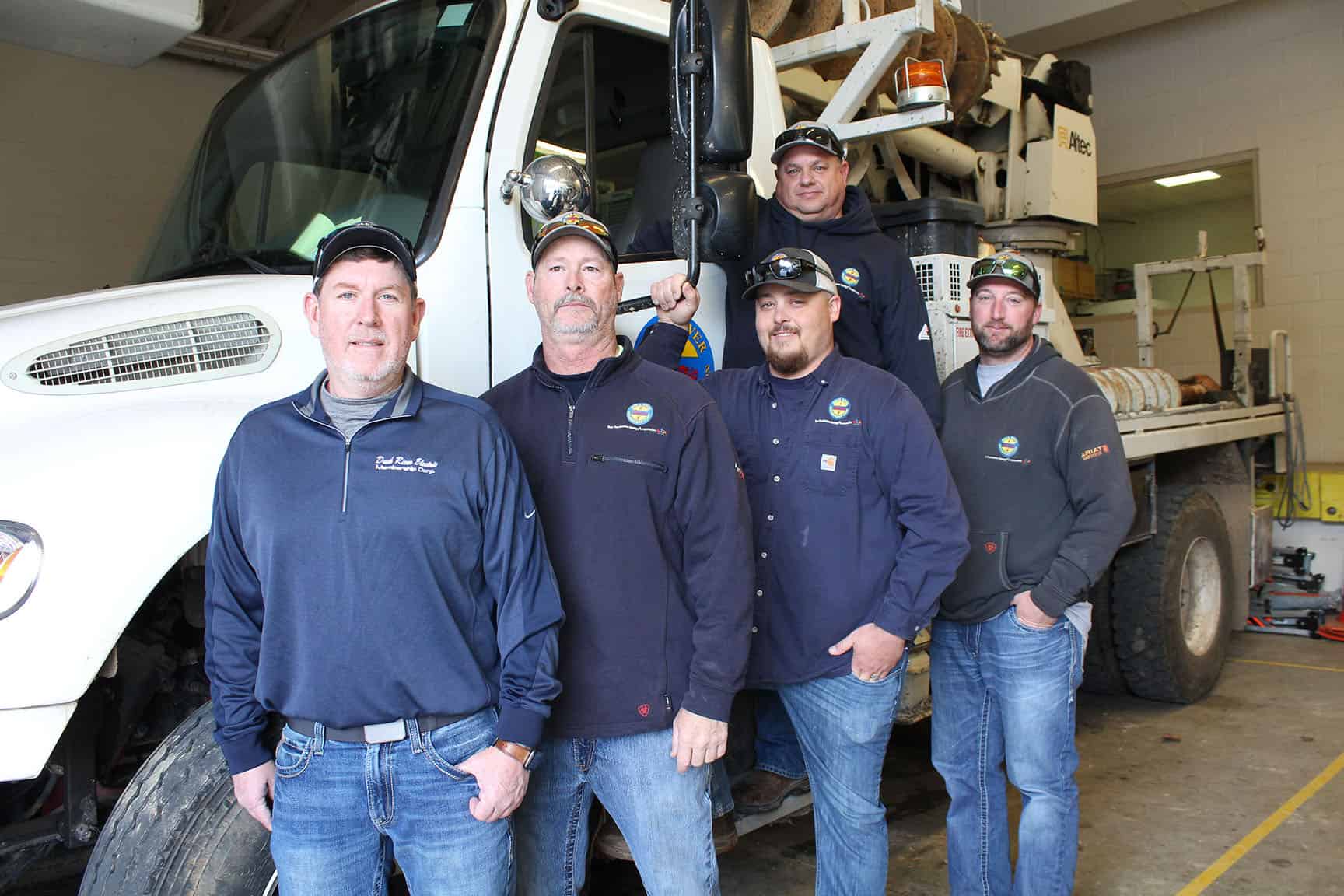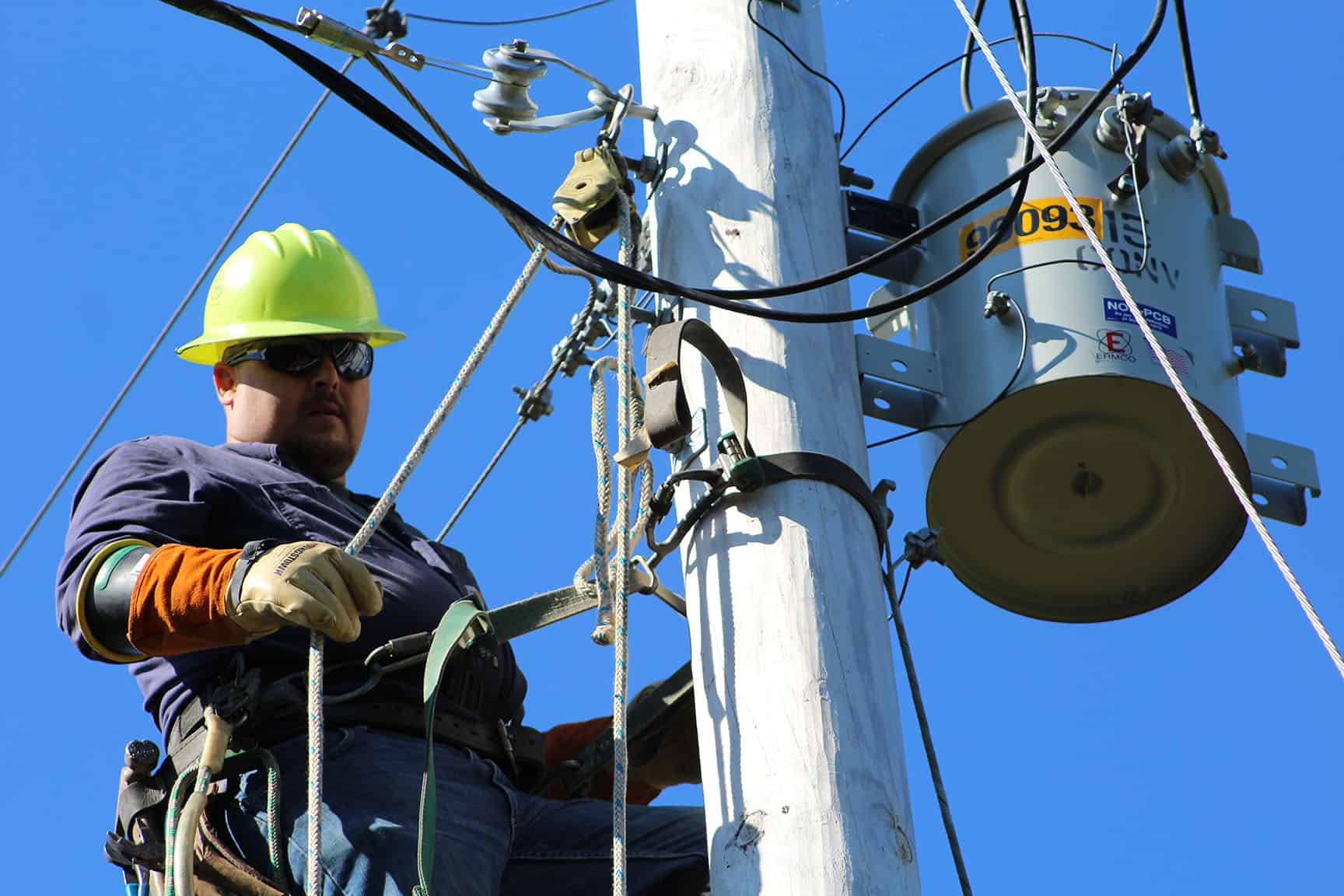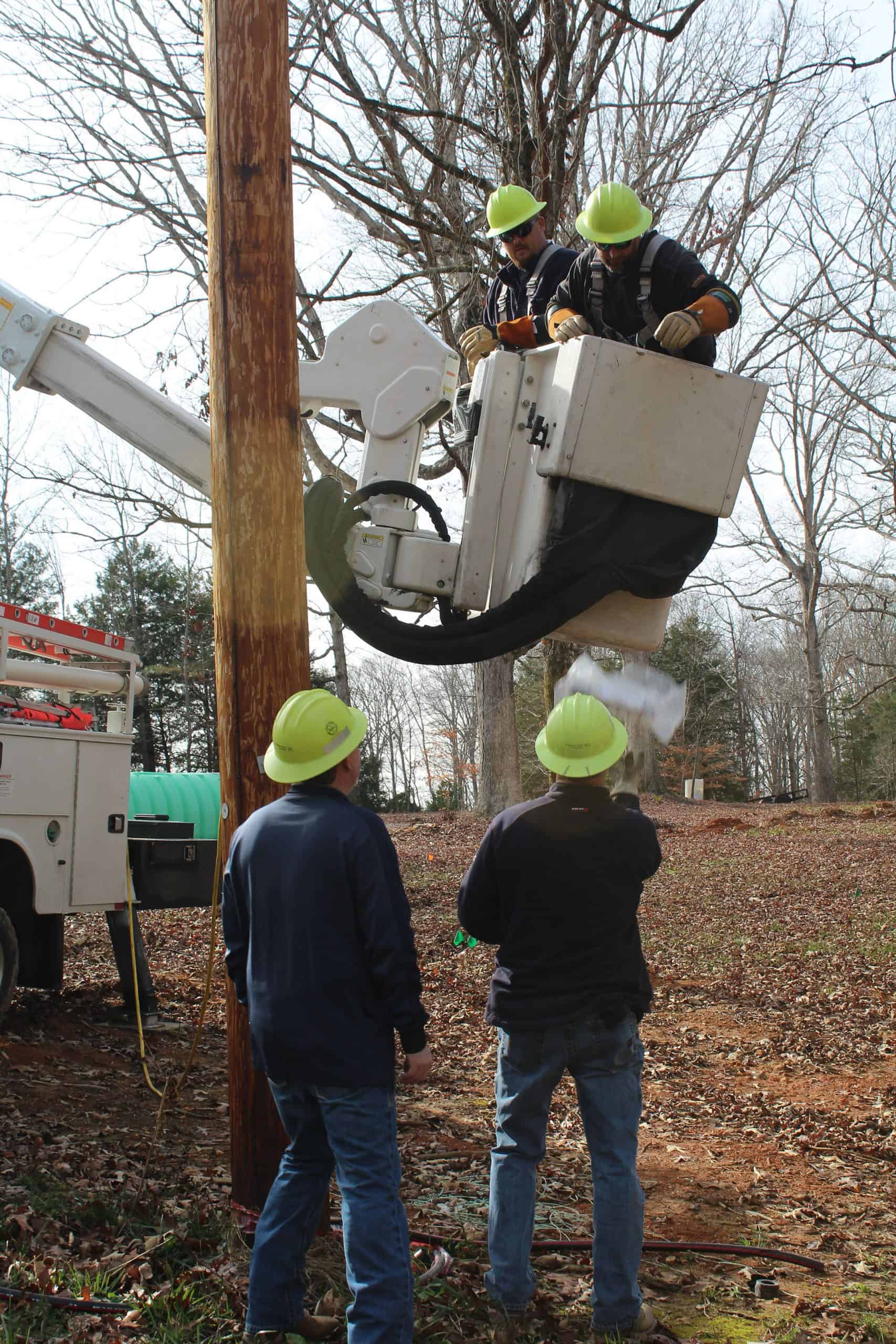It’s a little town with a big image. To be one of Tennessee’s smallest towns, Lynchburg, is home to one of the oldest and largest whiskey manufacturers, the Jack Daniel Distillery. It’s also home to one of the largest manmade lakes in the state, Tims Ford Lake, which not only provides recreational fishing and water sports but is also used by TVA for flood control and power generation.
Lynchburg has one traffic light, one grocery store, one electric substation, and one Duck River Electric team that works to provide power and customer service to just under 4,000 residential and business members in the Metro Lynchburg-Moore County area.
The DREMC Lynchburg district team includes Area Manager Eugene Cartwright says that working in the Lynchburg district office truly feels like he’s working with family. “We are small in number at our office, and we work hard to care for those we serve. And the employees here care for and help each other. When one employee’s vehicle is in the shop, another employee will pick him up and bring him to work.”
Cartwright began working at DREMC in 1990 as a draftsman in the engineering department at the Shelbyville headquarters location. From 1998 until 2006, he worked as a lineman before becoming Lynchburg’s area manager.
“I always believed that Duck River would be a great place to work, and I knew several people who worked here. Thirty-one years later, I know without a doubt that this is a great place to work.”
As a draftsman, Cartwright remembers the early days of designing electrical construction by hand using a pencil and paper before the process was converted to computer drafting. He was with DREMC when the introduction of SCADA (supervisory control and data acquisition technology that assists with outage management), air conditioning in fleet pickups, and other more modern tools and equipment were introduced to the cooperative to improve safety and streamline procedures.
As area manager, Cartwright supervises a team that includes one member service representative (MSR), four linemen, and a collector service aide – all working together on daily duties and planning for the growth that continues in the area.
Greg McGee, a lineman, has been with DREMC since Jan. 1989 and shares that his father worked for Bellsouth Telephone for many years, which was what interested him in becoming a DREMC lineman. He also shares that his son is now a lineman for a nearby municipal power system, which makes a three-generation legacy of utility careers in his family.
“I still have a square-nut wrench that my dad used at BellSouth, and I plan to pass it down to my son someday,” McGee says. “Working in the utility business is a rewarding career, especially when we restore power following a storm,” he adds. The Lynchburg linemen have an apparent camaraderie. It’s as if they are true brothers. But when on the job site and during storm recovery, their time together is focused and serious as they understand the dangers of the work they do.
Wade Crick, lineman, began working in the Shelbyville warehouse at DREMC in 1989. He became an apprentice groundman in Nov. 1990 and soon began his career as a Shelbyville district lineman. He spent 29 years as a lineman in Shelbyville before transferring to the Lynchburg district three years ago.
In the earlier days, tenured employees like Cartwright, McGee and Crick remember working from bucket trucks without a harness or safety belt, constructing new services based on hand-drawn, printed engineering sheets and wearing t-shirts with cutoff sleeves to stay cooler in summer months – practices that are much improved and safer by today’s standards.
“I purchased my first lineman belt, tools and hooks at a pawn shop,” recalls Crick. “Things were different 30 years ago. I remember when we received the first FR clothing (fire-resistant clothing worn to protect electrical workers from arc flashes, flames and thermal injury). Our crew was working in Shelbyville along Highway 231, and when we operated the last electrical switch on the line there was an equipment failure. I heard a loud boom and felt the heat from a fireball that flew from the nearby equipment! We were fine, and fortunately, the FR clothing helped protect us from injury. Things like this do happen.”
The seasoned linemen agree that safety improvements with the equipment they use and the processes they follow every day have made positive changes for their jobs, and they also agree on how thankful they are for those safety improvements.
Adam Stubblefield began his lineman career as an electrical contractor, and before coming to DREMC, he worked at a neighboring electric utility. “My brother was a lineman for a contractor, and I began working in his crew in 2004,” Stubblefield said. “My first foreman was Brian Seals, who is now Duck River’s Chapel Hill area manager. I used to enjoy traveling while working as a contractor. I was young and had a good income. But now it is rewarding to do the work I love in the same small community where I live. Under normal conditions, I’m home every night with my family. Being a lineman is hard work, and it’s hard on your family.





